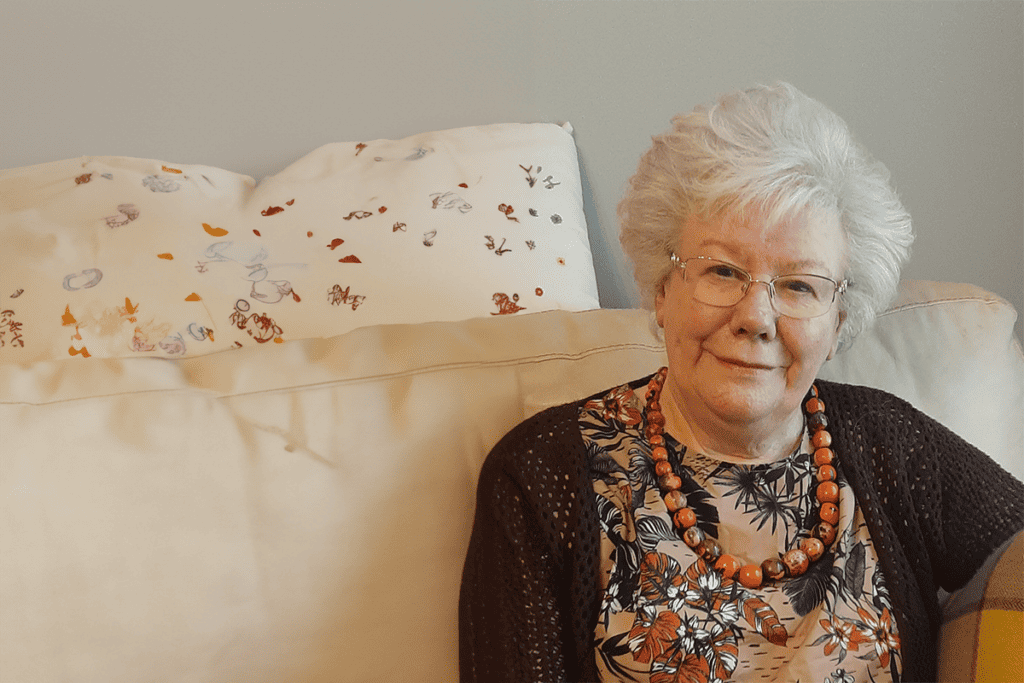Understanding Dementia with Louise Morse

Author: Faith in Later Life
Last week we were thrilled to welcome Louise Morse to come and speak to us about how we as individuals, and as the church, should understand dementia. Furthermore, Louise gave us some practical tips to help each of us care for those with dementia in our lives. These tips come from personal experience, academic expertise and most importantly, from the word of God.
Here are a few takeaways from Louise’s talk:
Firstly, Louise defined dementia broadly as the symptoms a person experiences when his or her brain undergoes neurological damage. Although dementia is the name for the symptoms, it’s interchangeable and therefore may be called other names too. Louise reminded us that although we often when we talk about dementia we have the cause in mind, but really it’s the symptoms. It’s the way people behave.
The difficult part is that we still don’t fully understand the all of the causes of Dementia but the good news is that research scientists have been able to show how lifestyle changes can avoid around 40 percent of cases. In fact, now that this advice has been out there a few years now, dementia is actually declining. There has been a 13 percent reduction per decade in new cases for the past few decades in the Western World, in high-income countries. According to a report by Harvard University and others, if the decline rate remains steady, there will be 15 million fewer cases of dementia in the coming years.
A Christian Perspective on Dementia Care
In Matthew 25:40, Jesus reveals, “Truly I tell you, whatever you did for one of the least of these brothers and sisters of mine, you did for me.’” (NIV)
Louise wanted to stress that dementia caregivers and people who support them should know how important their work is; that in fact everything they do for a person a person suffering from dementia, who now may seem to be the least, is touching Jesus himself as well. In addition, as Christians we ought also to look at each and every person and see the image of God within. “We’re not robots, we’re not mechanical, we’re much more than the sum of our parts.” Louise said.
In C.S. Lewis’s book “The Dawn Treader,” a boy named Eustace comes across a man named Ramandu who just happens to be a retired Star.
“In our world,” said Eustace, “a star is a huge ball of flaming gas.”
“Even in your world, my son, that is not what a star is but only what it is made of.
In the western world we might often be tempted to adopt the ageism of our time, we need to remember, like Eustace, that people are worth far more than their function, their use, their job, or their mental capacity. In the book of Ezekiel, we read about the temple, the outer walls, “which is like the body that you and I see” Louise said. “We see each other but we don’t really see each other, we just see our outer walls. Then, you have three entrances into the temple. You could say eyes, nose, mouth. The outer court is our gathering place. It’s where all the information comes in that we take in and then we drill that down and discard some and it goes through another door into the inner court. The inner court is where we process that information. And it’s where our emotions are and where we make decisions. It’s where we weigh up values, all the things that make us human.”
“…And then we have the priest’s chambers. That is the innermost court. In Hebrew, that’s the Kodesh Hakodashim, the holy of holies. That represents the spirit of the human being, which is alive from conception and is eternal. This is where we have our humanity, our spirit, it’s our real essence. It’s that which is alive and will live forever. And it’s where God communicates with us, in this priest’s chambers. When that flame was lit.”
When we’re talking about people with dementia, we are talking about people who have had damage to their brains. Their outer courts and their inner courts, particularly, have been damaged and they’ve been reduced. The brain is changing, neurological structures are disappearing, and yet, here we have, right in the heart of them, this priest’s chambers. It’s the spirit, it’s the human. It’s the person, It’s the ‘he’ or ‘she’ that can still receive and give love. It’s the ‘he’ or ‘she’ that can still respond to emotional environments. It’s the person that’s still a unique individual.
Importance of Person-Centered Care in Dementia
This is why person-centred care is so important. It’s recognising the person behind the dementia, recognising the human spirit, that they are still there. When we’re caring for someone with dementia, we’re looking at that damage, we’re acknowledging it, but we’re not stopping there. We’re moving on and seeing the person for who they really are, their true self. The person within. When we interact with someone with dementia, we need to see more than their cognitive impairment. Look for their spirit, their love, their feelings, their joys, their fears. They are more than their dementia, they are human beings with lives to live and stories to tell.
The Role of Caregivers and Supporters
And as caregivers, supporters, friend, and churches, it’s our role to help people with dementia live those lives and tell those stories, even if they can’t articulate them in the same way anymore. It’s our role to step into their world and see things from their perspective, to validate their experiences and emotions.
Conclusion
Remember that whatever you do for one of the least, you do for Jesus. So every act of love, every moment of understanding, every time we hold a hand or wipe a tear, we’re not just caring for a person with dementia. We are, in a very real sense, touching the heart of Jesus.
Thanks so much again to Louise for coming to speak with us.
Grace and Peace
